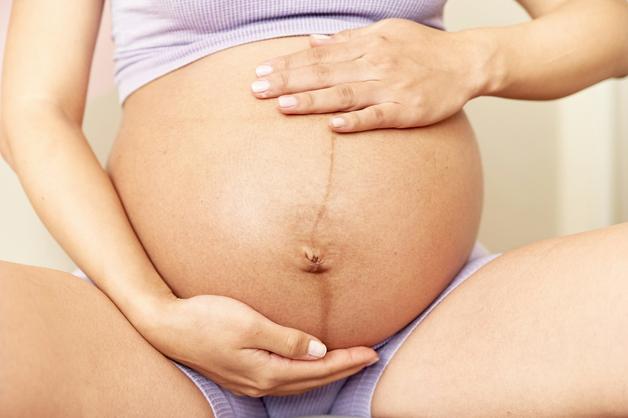Feeling like you’ve been hit by a sudden tropical wave, right in the midst of what should be a calm day? Hot flashes during pregnancy can leave even the most prepared parents bewildered, sticky, and sometimes downright exhausted. You’re expecting magic, but instead, you’re peeling off layers in the middle of the night, fanning yourself and searching for answers that make sense. Should you be worried about these unpredictable bursts of heat? What’s actually going on in your body, and how can you reclaim your comfort? Hot flashes during pregnancy are more than a trivial inconvenience—they tangle with your rest, your moods, and the small rituals of daily life that bring stability and joy. From the flutter of blood vessels to the nuanced choreography of hormones, understanding the science behind these sensations offers a real sense of control. Let’s explore together why hot flashes during pregnancy appear, who’s most affected, when you need extra vigilance, and the strategies—both medical and practical—that actually help.
Understanding Hot Flashes During Pregnancy
Hot flashes during pregnancy, much like sudden power surges in a monsoon evening, sweep over the face, neck, and chest. One moment calm, the next, you might feel as if you’ve stepped beneath a halogen lamp—skin flushed, tiny pearls of sweat glistening on your forehead. This isn’t fever. It arrives out of nowhere and just as quickly disappears, leaving perhaps a chilly afterglow.
Medically, these hot flashes happen thanks to hormonal fluctuations—predominantly swings in estrogen, progesterone, and prolactin—which interact with your circulatory system and brain’s thermostat (the hypothalamus), causing rapid dilation of blood vessels near the skin. The warmth, surprisingly, isn’t reflected in your core body temperature (unlike a true fever), but rather the surface perception of heat. These episodes differ from menopausal hot flashes, as they result from hormone surges rather than gradual decline.
Ever felt restless nights and drenched sheets? That’s the notorious night variant. Unlike a viral fever that brings aches or malaise, hot flashes during pregnancy don’t signal infection and don’t correlate with muscle pain or persistent unwellness. Yet, they do interrupt routines, especially sleep, creating a domino effect—tired mornings, irritable mood, and a constant quest for coolness.
How Common Are Hot Flashes, and When Do They Strike?
Survey ten expectant parents and nearly three will nod knowingly about hot flashes during pregnancy. Their onset varies: some discover them in the earliest weeks, even before the bump emerges, while others greet these flushes in the second or third trimester—peak incidence. Sometimes, night sweats crescendo towards the end of pregnancy or linger for weeks after delivery, as those wild hormone tides finally ebb.
Wondering who’s more likely to face these bursts? Younger parents (under 30), individuals with a higher BMI, or anyone with past episodes of anxiety, depression, or thyroid roller coasters (hyperthyroidism, for example) might find themselves wrestling more frequently with these symptoms. But the spectrum is broad—no two journeys are identical, and for some, hot flashes during pregnancy barely register while, for others, they shape day-to-day comfort profoundly.
What Causes Hot Flashes in Pregnancy?
Zooming inside the body, a fascinating interplay unfolds between reproductive hormones and the nervous system. Changes in estrogen and progesterone recalibrate heat regulation in often unpredictable ways, leaving the hypothalamus more “sensitive” to trivial triggers—a sunny commute, a cup of tea, or a burst of activity.
Beyond hormones, a few culprits amplify hot flashes during pregnancy:
- Weight gain: Additional tissue acts as a built-in blanket, raising baseline warmth.
- Increased cardiovascular output: The heart pumps stronger, and blood surges faster, making every vessel a potential radiator.
- Physical exertion: Even moderate activity might bring on that burning sensation.
- Sleep disturbance: Poor-quality sleep or frequent waking makes nighttime hot flashes and sweats more likely.
- Dietary triggers: Spicy foods, caffeine, and alcohol—these simple comforts can be sneaky instigators.
- Stress: Emotional tension tweaks hormone balance and nervous system reactivity, often tipping the scales.
- Clothing choices: Tight attire or synthetic fabrics trap heat—leading to discomfort that lingers long after the episode.
Gestational diabetes, hyperthyroidism, or anxiety-related disorders may sharp the intensity, so vigilance regarding underlying medical issues remains important.
Recognising and Describing the Symptoms
What does a hot flash during pregnancy feel like? It generally starts as an abrupt, overwhelming heat spreading upwards. Redness (flushing) might paint cheeks and chest. Profuse sweating—often dramatic enough to soak through pajamas or pillowcases—can occur, especially at night. For some, palpitations, brief dizziness, or trembling complete the experience, followed by a transient chill. Sleeplessness, irritability, or a sense of temporary loss of control may be familiar companions.
A key point: ongoing fever above 100.4°F (38°C), lasting weakness, sustained palpitations, or sudden, unexplained weight loss—these aren’t typical. Such symptoms should always prompt a prompt assessment by a healthcare provider.
The Daily Impact of Hot Flashes
It’s easy to downplay hot flashes during pregnancy, yet these episodes ripple through daily life in ways that go beyond mere discomfort. Imagine being startled awake multiple times a night, peeling off damp clothes, or anxiously counting down until the next temperature swing. Over weeks, sleep debt accumulates, patience wears thin, morning routines stretch, and familiarity gives way to fatigue.
Physiologically, disrupted sleep saps energy and strains emotional equilibrium, sometimes affecting relationships with partners, children, or colleagues. On public transport or at work, the visible shine of sweat or sudden redness can feel humiliating or distracting.
Support—whether from a caring partner, tolerant colleagues, or even their own community—is invaluable. Gentle, regular self-care rituals restore a sense of agency and calm, helping parents adjust routines with more resilience.
Distinguishing Hot Flashes from Other Pregnancy Conditions
Hot flashes during pregnancy are distinct from fever, infection, or severe dehydration. While they trigger acute warmth, they do not increase your internal body temperature—the thermometer tells the real story. Persistent fever, muscle aches, or ongoing malaise hint at infectious or medical causes rather than routine pregnancy changes.
Mislabelled as morning sickness or “overheating,” hot flashes remain unique for their sudden onset and rapid resolution. Any partner noticing chest pain, persistent palpitations, fainting, or breathlessness should seek medical opinion—sometimes conditions like thyroid dysfunction, gestational diabetes, or infection need urgent treatment.
Myths and Misunderstandings
A persistent rumor: hot flashes during pregnancy stand as an oracle for baby’s gender or the likelihood of twins. Scientifically, no connection exists. Any advice suggesting that a specific dietary change or folk remedy can “cure” hot flashes is similarly unsupported by evidence. While cultural wisdom around self-care is comforting, distinction between tradition and evidence-based guidance is important—focused on safety first, without chasing unfounded myths.
Practical Ways to Relieve Hot Flashes
Hot flashes during pregnancy rarely disappear entirely, but thoughtful rituals can offer significant relief. Key strategies include:
- Prioritising loose, breathable clothing, like cotton—always better than synthetic blends.
- Layering garments, so you’re ready for instant temperature changes.
- Creating a cool environment, using fans, open windows, or keeping the room temperature around 17–18°C (64–66°F), especially at night.
- Hydration: Focus on 1.5–2 liters of water daily; snack on hydrating fruits (watermelon, cucumber) and fresh produce. Frequent, light meals trump heavy, rich foods.
- Cooling accessories: Carry a spray bottle, pocket-sized fan, or cool compress wherever you go.
- Gentle exercise: Easy walks, swimming, or prenatal yoga foster circulation and relax body tension—without pushing core temperature dangerously high.
- Mindful relaxation: Techniques like deep breathing, prenatal yoga, or simply a quiet moment with cool water can reset the nervous system, dampening the trigger for hot flashes during pregnancy.
Vigorous activity, thick fabric, excessive effort in hot weather—all merit caution. Let comfort guide your choices.
Prevention and Lifestyle Adjustments
Avoidance sometimes works wonders. For hot flashes during pregnancy, keep away from well-known triggers: spicy food, caffeine, tight clothing, direct sun, or stressors. Schedule rest during the hottest part of the day, keep your living quarters airy, and refresh your body with cool showers (but skip icy ones, which can stress the system).
Use blackout curtains or keep shutters drawn to keep indoor temperatures manageable during sweltering spells, then open windows during early morning or late evening. Small tweaks, repeated daily, can create outsized comfort for many parents.
Herbal Remedies, Supplements and Cautions
Parents might be tempted by herbal teas or “natural” supplements. During pregnancy, however, plant remedies containing phytoestrogens (like soy, red clover, or hops) can mimic hormones and may be unsafe. Essential oils, too, cross the placenta—so lean only on gentle mint or chamomile tea, and always after consulting your practitioner.
Homeopathy or acupuncture is sometimes sought out, but only practitioners deeply experienced with pregnancy should guide such choices. Remember—over-the-counter remedies meant for menopausal women haven’t demonstrated safety during pregnancy. Better to err on the side of caution and discuss any supplement with your medical professional.
When to Seek Medical Advice
If hot flashes during pregnancy become relentless, bring on breathlessness or fainting, or are paired with severe malaise, palpitations, or fever, don’t hesitate—these symptoms may indicate thyroid or metabolic disorders demanding attention, such as gestational diabetes. Safety always comes first, and only a medical assessment can definitively rule out more complex causes.
Pregnancy hormone therapies or therapies designed for menopause don’t belong in the pregnancy toolkit; medication use requires especially careful oversight. Self-treatment without medical input is not advised.
Community and Support: Sharing Experiences
From sharing cotton saree tips in family circles to swapping spray bottle hacks in prenatal classes, peer support transforms private discomfort into collective resilience. Confidence grows when embarrassment fades, and exchanging real-world solutions—cool fabrics, window airing, hydration—restores a sense of capability.
Yet, nothing replaces the reassurance of a knowledgeable healthcare provider—someone who distinguishes routine from concerning symptoms and offers tailored advice for peaceful pregnancy and recovery.
Key Takeaways
- Hot flashes during pregnancy arise due to hormonal and cardiovascular shifts—most often surfacing in the second and third trimesters, sometimes even postpartum.
- Episodes don’t involve raised core temperature—look for rapid warmth, flushing, and sweating, not fever.
- Layered clothing, proper hydration, and regular, gentle physical activity are key allies in comfort.
- Herbal supplements and menopause-oriented remedies are not recommended during pregnancy; safety must always be prioritised.
- Illness indicators—persistent fever, significant palpitations, unexplained fatigue, quick weight loss—always warrant a prompt medical check-up.
- A blend of self-care, family involvement, and professional guidance offers the strongest support throughout the unpredictable rhythms of pregnancy.
- For more practical advice and customised health questionnaires for children, parents can try the Heloa app, supporting evidence-based care at home.
Questions Parents Ask
Can hot flashes be an early sign of pregnancy?
Absolutely, hot flashes during pregnancy might show up as some of the earliest cues that something is changing. While one person may sense an unusual wave of warmth days after conception, another might never notice. It is the hormonal symphony—especially the spike in estrogen and progesterone—that sets the stage. Not to worry, experiencing hot flashes early on is common and typically harmless.
Do hot flashes during pregnancy indicate a problem?
Ordinarily, hot flashes during pregnancy are evidence of normal hormone shifts and metabolic demands. For most, these are benign and not a sign of anything concerning. If ever these episodes come with persistent fever, chest pain, or fainting, medical input becomes essential. Most parents, though, can rest assured—hot flashes during pregnancy are part of the process, not a sign of illness.
How long do hot flashes last during pregnancy?
The length fluctuates—a sudden surge of heat may pass in a minute, occasionally stretching a bit longer. After childbirth, as hormone levels abate, many find relief. But in case episodes feel overwhelming or stretch on, don’t hesitate to consult with your healthcare provider. Personal treatments and reassurance can make a noticeable difference.









